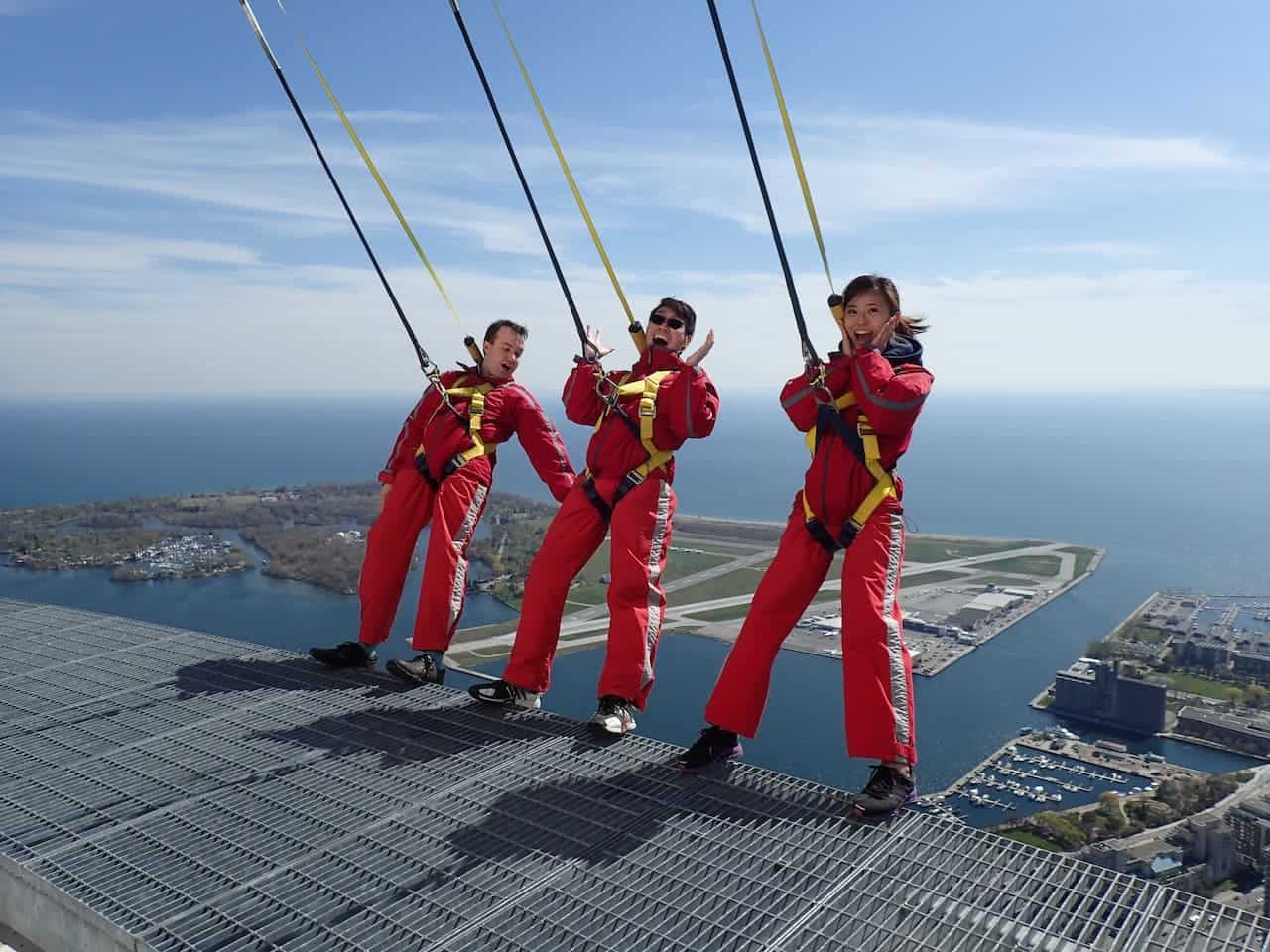The CN Tower is not just a symbol of Toronto; it is a testament to human ingenuity and architectural brilliance. Standing tall at a height of 553.3 meters (1,815 feet), this iconic structure has been a focal point for millions of visitors and locals alike since its completion in 1976. The CN Tower offers breathtaking views, unique experiences, and a deep dive into the history of one of the world's most recognized landmarks.
In this article, we will explore the CN Tower in detail, covering its history, architecture, visitor experiences, and its significance as a cultural landmark. Whether you are planning a visit or simply want to learn more about this impressive structure, this comprehensive guide will provide you with all the information you need.
With a blend of fascinating facts, visitor tips, and insights into the engineering marvel that is the CN Tower, we aim to provide a thorough understanding of why this landmark continues to captivate the hearts of many. Let’s embark on this journey to discover everything about the CN Tower!
Table of Contents
- 1. History of the CN Tower
- 2. Architecture and Engineering
- 3. Visitor Experience
- 4. Cultural Significance
- 5. Fun Facts About the CN Tower
- 6. CN Tower Data and Statistics
- 7. Safety Measures
- 8. Conclusion
1. History of the CN Tower
The CN Tower was conceived as a telecommunications tower to improve communication signals across Toronto. The construction began in 1973 and was completed in 1976, with the official opening taking place on June 26, 1976. At the time of its completion, the CN Tower was the tallest freestanding structure in the world, a title it held until 2007.
1.1 Construction Timeline
- 1973: Construction begins.
- 1975: The tower reaches its full height of 553.3 meters.
- 1976: Official opening and public access granted.
1.2 Initial Purpose
Originally built for telecommunications purposes, the CN Tower played a crucial role in enhancing radio, television, and telephone signals in the area. Over the years, it has evolved into a major tourist attraction, drawing millions of visitors each year.
2. Architecture and Engineering
The design of the CN Tower is a remarkable feat of engineering, combining functionality with aesthetic appeal. The tower was designed by architect John Andrews and constructed by the Canadian National Railway.
2.1 Structural Design
The CN Tower's design features a three-part structure: the base, the shaft, and the observation deck. The base is a large concrete structure that supports the weight of the tower, while the shaft is a narrow, tapering section that rises to the observation deck.
2.2 Engineering Innovations
- Use of reinforced concrete to support the tower's height.
- Incorporation of an elevator system that allows visitors to reach the observation deck in just 58 seconds.
- Advanced wind resistance features, allowing the tower to withstand strong winds.
3. Visitor Experience
Visiting the CN Tower is an unforgettable experience, offering stunning panoramic views of the Toronto skyline and Lake Ontario. The tower features various attractions that cater to visitors of all ages.
3.1 Observation Decks
The CN Tower boasts two observation decks. The main deck, located at 346 meters, provides breathtaking views of the city, while the SkyPod, at 447 meters, offers an even more elevated perspective.
3.2 EdgeWalk Experience
For the adventurous, the CN Tower offers the EdgeWalk, a thrilling experience that allows visitors to walk around the outer edge of the tower at a height of 356 meters, securely harnessed to the structure.
4. Cultural Significance
The CN Tower has become a symbol of Toronto and a prominent feature of the city’s skyline. It is often used in promotional materials to represent Toronto and Canada as a whole.
4.1 Iconic Status
The CN Tower's iconic status has made it a popular subject in films, television shows, and photographs, further solidifying its place in popular culture.
4.2 Events and Celebrations
- Light shows on special occasions, such as national holidays.
- Hosting events, including weddings and corporate gatherings.
5. Fun Facts About the CN Tower
The CN Tower is not only an architectural marvel but also a treasure trove of interesting facts and trivia that many people might not know.
5.1 Record-Breaking Heights
- Once the tallest freestanding structure in the world.
- Houses the highest wine cellar in the world, located at the 360 Restaurant.
5.2 Unique Features
The CN Tower features a glass floor in its observation deck, allowing visitors to look straight down at the ground below, adding an extra thrill to the visit.
6. CN Tower Data and Statistics
Here is a summary of key statistics and data related to the CN Tower:
| Feature | Details |
|---|---|
| Height | 553.3 meters (1,815 feet) |
| Floors | 3 observation decks, including the SkyPod |
| Construction Time | 3 years (1973-1976) |
| Visitors Annually | Approximately 1.5 million |
7. Safety Measures
The safety of visitors is a top priority at the CN Tower. The structure is equipped with the latest safety features and protocols to ensure a safe experience for everyone.
7.1 Regular Inspections
The CN Tower undergoes regular inspections and maintenance to ensure its structural integrity and safety for visitors.
7.2 Emergency Protocols
- Well-trained staff to handle emergencies.
- Clear evacuation procedures in place.
8. Conclusion
In conclusion, the CN Tower is a remarkable structure that stands as a symbol of Toronto's architectural prowess and cultural significance. From its rich history to its breathtaking views and unique visitor experiences, the CN Tower continues to be a must-visit destination for anyone traveling to Toronto.
We encourage you to share your thoughts in the comments below, whether you’ve visited the CN Tower or are planning a trip soon! Don’t forget to explore more articles on our site for additional insights and travel tips.
Thank you for joining us on this exploration of the CN Tower, and we hope to see you back here for more exciting content!


